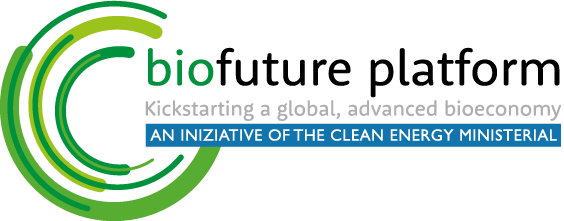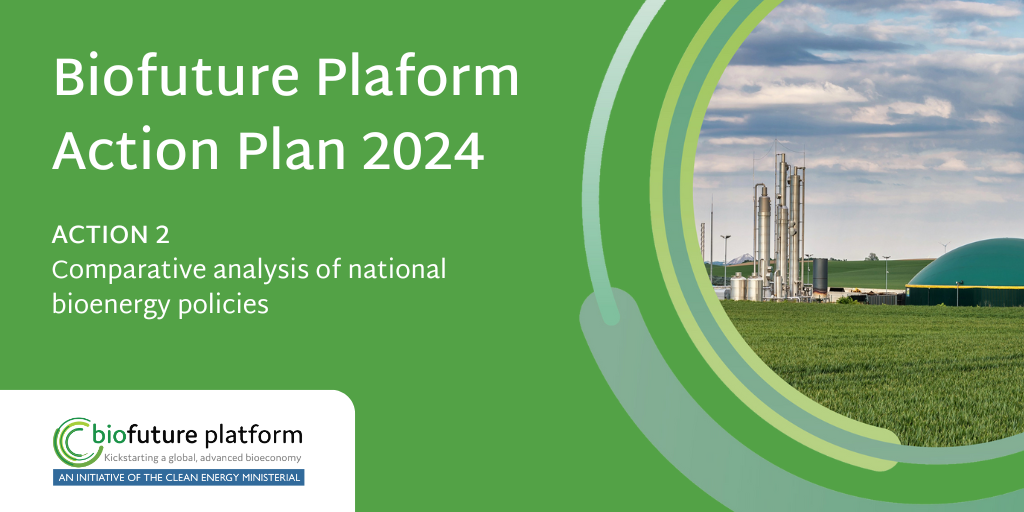The decision is set out in a declaration released today by the Biofuture Platform member countries – titled “Scaling Up the Low Carbon Bioeconomy”.
It is a major breakthrough for sustainable biofuels and the broader bioeconomy, which will now become a key component of the global solution to climate change.
The declaration is the culmination of nine months of negotiations and is the first time countries and other stakeholders have formally agreed to develop targets for biofuels and the bioeconomy, and construct an action plan to achieve them.
The declaration was adopted today at the COP23 Climate Change Conference in Bonn by member countries of the Biofuture Platform: Argentina, Brazil, Canada, China, Denmark, Egypt, Finland, France, India, Indonesia, Italy, Morocco, Mozambique, the Netherlands, Paraguay, the Philippines, Sweden, the United Kingdom and Uruguay.
“What we have just accomplished here with the endorsement of this statement is quite remarkable”, said Brazil’s Minister of the Environment, José Sarney Filho. “The technology and the awareness of the need for bio-based solutions are finally coming together.”
The decisions announced today have been informed by modelling from the International Energy Agency (IEA) and the International Renewable Energy Agency (IRENA) – both partners in the Biofuture Platform – concluding that the 2030 temperature goals adopted in the Paris Agreement cannot be reached without a major increase in the production and use of sustainable biofuels and bioproducts.
Specifically, the IEA and IRENA conclude that “in order to limit the increase in global average temperature to well below 20C above pre-industrial levels and pursue efforts to reach 1.5ºC, bioenergy and biofuels share in the global energy matrix must be accelerated to achieve at least a doubling in the next 10 years”. In specific sectors, such as transport, the need is even greater. “Biofuels in transport would need to grow three fold by 2030, most of it coming from advanced technologies using non edible feedstocks, including waste and residues.”, says Fatih Birol, Executive Director of OECD’s International Energy Agency (IEA).
In addition to developing specific targets, participating countries will “devise an action plan outlining detailed actions to support achieving the targets, [and] develop a reporting mechanism to track progress”.
“Because of its abundant, renewable raw materials and its integration with existing fuel systems, biofuels have been instrumental in reducing emissions and replacing existing fuels,” said Special Representative for Climate Change of China, Mr. XIE Zhenhua. “Through problem-oriented work methods, we should strive to form feasible proposals or solutions and promote transformative measures”.
While some progress has been made in growing the bioeconomy, there is an urgent need to drive investments and overcome challenges in scaling up production and use, including oil and feedstock price volatility and policy uncertainty.
To address such challenges, in the declaration member countries agreed that coordinated international action is required to implement policy solutions, many of which have already been adopted by member countries, including specific biofuels mandates, sustainable low-carbon agricultural policies, R&D support, and incentives related to verified carbons savings.
In the declaration, member countries also call for climate and green financing mechanisms and institutions to ramp up resourcing of bioeconomy projects as a top priority.
“It is important that the statement includes key actions, as concrete actions are needed to reach our common goals. All actors need to get involved. With wise policy measures, like streamlining regulation and creating incentives, we can create an encouraging business environment for bio-economy investments”, said Kimmo Tiilikainen, Minister of Environment of Finland.
“While renewables have made rapid progress in the power sector, energy transformation in end use sectors such as industry, heating and transport needs to be accelerated to meet climate objectives. Bioenergy will play a key role in this context. As such, we welcome the vision statement of the Biofuture Platform and will continue to support it as it works to build a sustainable energy future,” said Adnan Z. Amin, Director-General of the International Renewable Energy Agency (IRENA).
At the event, Brazil provided an update on the RenovaBio Program to create financial incentives for investments in low-carbon biofuels, as part of its commitment to the Biofuture Platform. A bill to implement the program was introduced into the Brazilian Congress this week.
SPEAKERS
• José Sarney Filho, Minister of the Environment, Brazil.
• Ministers from other Biofuture Platform Member Countries.
• Fatih Birol, Executive Director, International Energy Agency (IEA).
• Adnan Z. Amin, Director-General, International Renewable Energy Agency (IRENA).
• Rachel Kyte, Special Representative of the UN SecretaryGeneral for Sustainable Energy for All (SE4ALL).
• Marcelo Khaled Poppe, Center for Strategic Studies and Management in Science, Technology and Innovation (CGEE) – Presentation of the results of the I Biofuture Summit and update on the work of the Biofuture “State of the Advanced Low Carbon Bioeconomy” report.
• Plinio Nastari, Counsellor, National Council for Energy Policy (CNPE) – 19h45 Highlighting policy action at the national level: Brazil´s new Renovabio programme.
• Alfredo Hélio Sirkis, Executive Secretary, Climate Change Forum, Brazil • J. Antonio Marcondes, Undersecretary for Environment, Energy, S&T, Brazil, Chief Negotiator for Brazil at COP23.
CONCEPTS AND DEFINITIONS:
• The concept of modern bioenergy, while being defined somewhat distinctly by different institutions, generally includes all forms of biofuels, first and second generation, which have lower carbon emissions than the equivalent fossil fuels (including most forms of industrial biofuels in current use), bioelectricity generation, bioenergy for heat and power in efficient thermal plants and industrial furnaces, and biogas. The concept excludes “traditional bioenergy”, mostly referring to the unsustainable and unmanaged use of wood for cooking and heating, especially in some developing countries.
• The term bioeconomy is also differently defined by different parties. For the purpose of the Biofuture Platform, it is defined as the set of economic activities related to the invention, development, production and use of biological products and/or processes for the production of renewable energy, materials and chemicals. It includes the production of modern bioenergy, including biofuels, bioplastics, and bio-based materials. It generally excludes the food and pharma sectors.





